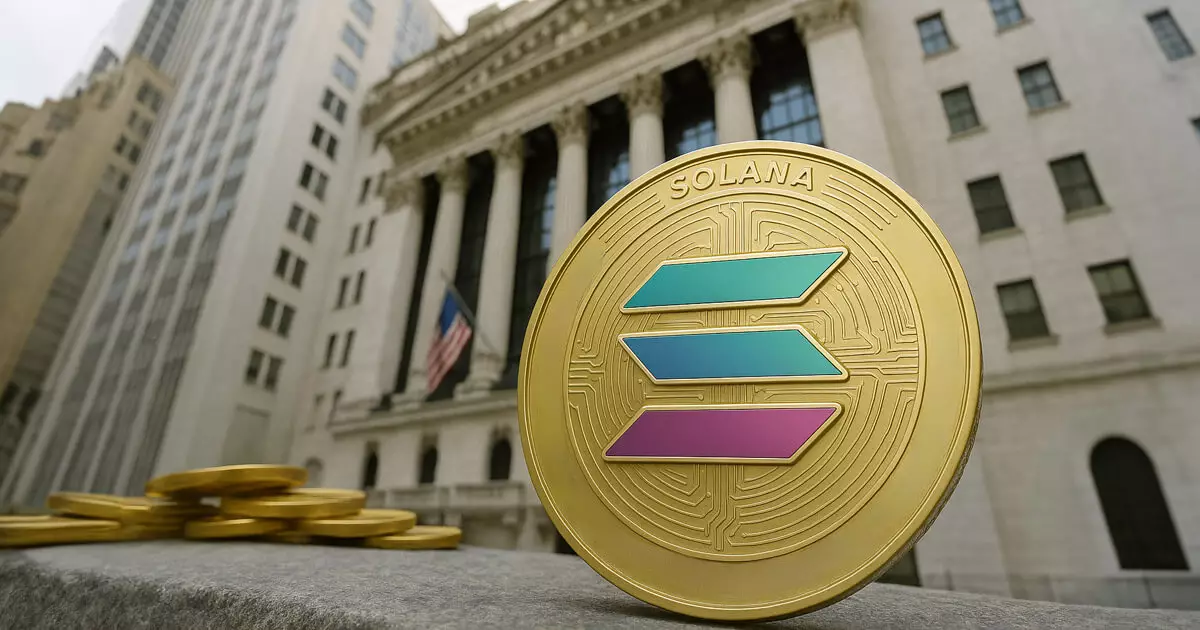Grayscale, a prominent player in the digital asset management space, has taken a significant step in its quest to establish a spot Solana exchange-traded fund (ETF). On April 4, the company submitted a Form S-1 to the US Securities and Exchange Commission (SEC) with aspirations to transform its existing Grayscale Solana Trust (GSOL) into a publicly traded ETF. While the crypto community has expressed optimism—polymarket traders currently suggest there’s an 83% probability the SEC will approve the Solana ETF by year’s end—the actual timeline remains uncertain. Only a mere 23% predict approval before the end of July. This disparity between hope and reality underscores the often volatile nature of regulatory decisions within the crypto sphere.
Deliberate Steps Amidst Regulatory Uncertainty
The timing of Grayscale’s submission is notably strategic. It occurs nearly four months post the initial 19b-4 filing, which the SEC acknowledged on February 6. Such timing indicates that Grayscale is not merely throwing spaghetti at the wall; rather, it reflects a calculated and cautious approach amid a landscape rich with regulatory challenges. If granted, the ETF would operate under the new title of Grayscale Solana Trust ETF on the NYSE Arca exchange, paving the way for broader institutional adoption of the Solana ecosystem.
Interestingly, Grayscale has opted for a cash-only creation and redemption mechanism at launch, eschewing in-kind transactions. This decision signifies a protective stance, one that acknowledges the lack of definitive regulatory guidance on how brokers may interact with SOL in compliance with federal laws. It raises a critical question about whether this conservative methodology allows for a sustainable pathway through a labyrinth of existing regulations, or if it simply hinders potential growth.
Custodians and Without Staking: The Hardline Approach
Grayscale’s choice of Coinbase as the ETF’s custodian and BNY Mellon as the administrator further emphasizes a commitment to regulatory compliance. However, the ETF will not engage in staking or participation in Solana’s proof-of-stake system. This choice may seem conservative at first glance, yet it reflects an intense scrutiny placed upon staking by the current regulatory environment. Under Gary Gensler’s previous leadership, the SEC has adopted a hardline stance against staking, contributing to a choppy investment climate filled with uncertainty.
However, attitudes may be shifting. With a new administration in place, industry experts anticipate a more favorable outlook toward staking integration into ETFs for proof-of-stake platforms like Ethereum and Solana. Embracing changes could potentially yield extra profits for investors, but whether it will translate into actionable regulatory measures remains to be seen.
The Call for Balance in Innovation and Regulation
What is striking about Grayscale’s strategy is the balance it seeks to strike between innovation and regulatory caution. In an era where the urge to capitalize on emerging technologies can outweigh prudent decision-making, Grayscale’s method appears to prioritize longevity over quick gains. By not rushing into staking and taking a sensible approach to compliance, the firm may indeed be setting a benchmark for others in the industry.
The discussion surrounding regulatory frameworks for cryptocurrencies is complex and requires thoughtful navigation. As we look towards a future potentially enlivened by Solana ETFs, it remains imperative that industry players tread carefully, fostering both innovation and compliance. Ultimately, the stakes are high, and Grayscale’s measured progress represents an interesting chapter in the evolving narrative of cryptocurrencies and regulatory reform.














